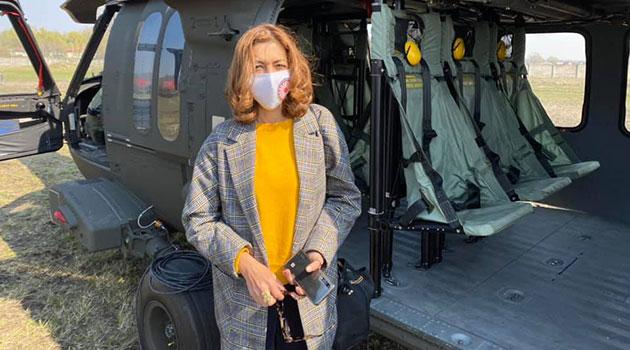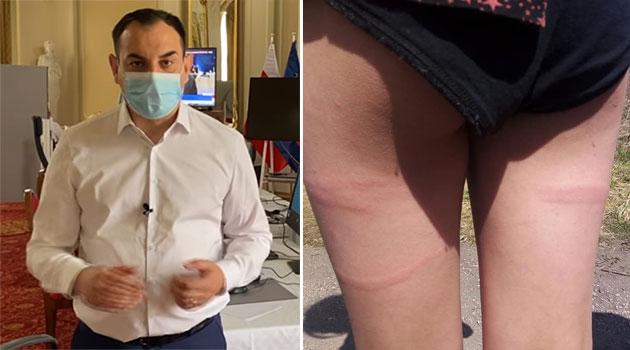Slovak Govt Plenipotentiary for Romani Communities says she belives police brutality incident will be properly investigated, officer has been transferred

Andrea Bučková, the Slovak Government’s Plenipotentiary for Romani Communities, has published a statement to her Facebook profile about Monday’s attack on children from a Romani settlement that was apparently committed by a truncheon-wielding police officer because the children crossed the police tape marking off the quarantined space to collect kindling. The officer is also said to have threatened to shoot the children.
A soldier in the Slovak Army is said to have also observed the incident. MEP Peter Pollák, a Romani community member who is a former Plenipotentiary for Romani Communities, has already sharply condemned the incident.
Bučková’s post describes in detail what is said to have taken place in the Košice Region, specifically in the municipality of Krompachy and its Stará Maša locality. “After the subsequent investigation of the causes of this disturbance it was ascertained that a group of minors had been outside the quarantine zone, so members of the Police of the Slovak Republic began to chase them, and one of them, according to the children, began to beat the children on their legs with his truncheon. As soon as my colleagues discovered this, they called for rapid medical aid, the children concerned were examined, and they also called the director of the District Department of the Police Corps in Krompachy and the Deputy District Director of the Police of the Slovak Republic. Employees of our regional office remained to supervise the proper documentation of all the evidentiary materials and also arranged for photographic documentation of the injuries, and one can see in the photographs that the children have contusions on their legs consistent with being struck by a truncheon. All the evidence and the medical records associated with the incident were sent to the Internal Inspection Authority of the Interior Ministry of the Slovak Republic. According to the current information, the member of the police corps who will be held accountable for this act has been transferred out of the locality of Stará Maša,” she posted.
“I am immeasurably sorry that such a situation has arisen, especially because minors have had to pay the price. Currently we are all subjected to increased pressure because of the measures associated with COVID-19. Many of us cannot even imagine what life under quarantine is like, which the inhabitants of Žehra and some inhabitants of Krompachy still find themselves in. Although everybody is doing their best to provide aid, and the people ‘beyond the police tape’ are doing their best as well, it is not the same as when we have the freedom to go where we want. That is especially difficult for children,” she posted.
The Plenipotentiary also called for ordinary citizens and members of the police not to succumb to the pressure that is being put on many people by the measures taken to control the pandemic. “We cannot give in to this pressure, though. All of us must approach this responsibly – the people under quarantine and the members of the police corps. I believe this entire incident will be properly investigated and I will be asking for information about the findings from the Inspection Authority of the Interior Ministry of the Slovak Republic,” she posted.
This is the third report of a controversial intervention committed by the Slovak Police against Romani people during the COVID-19 pandemic. The previous cases, however, involved police officers using force against adult Roma.
Police officers also harshly intervened against Romani people in Bardějov over the Roman Catholic Easter weekend. The reason is said to have been that a Romani man was not wearing a face mask in public.
MEP Pollák also filed a motion about that incident with the Inspection Authority of the Interior Ministry. In mid-April video footage was posted to social media of police officers intervening against another Romani man not wearing a face mask in public in Bánovce nad Bebravou.
